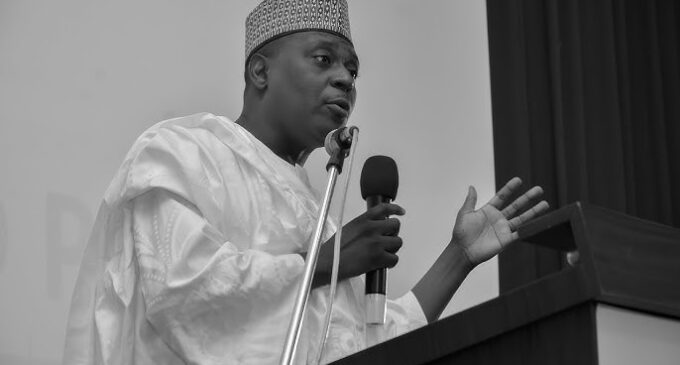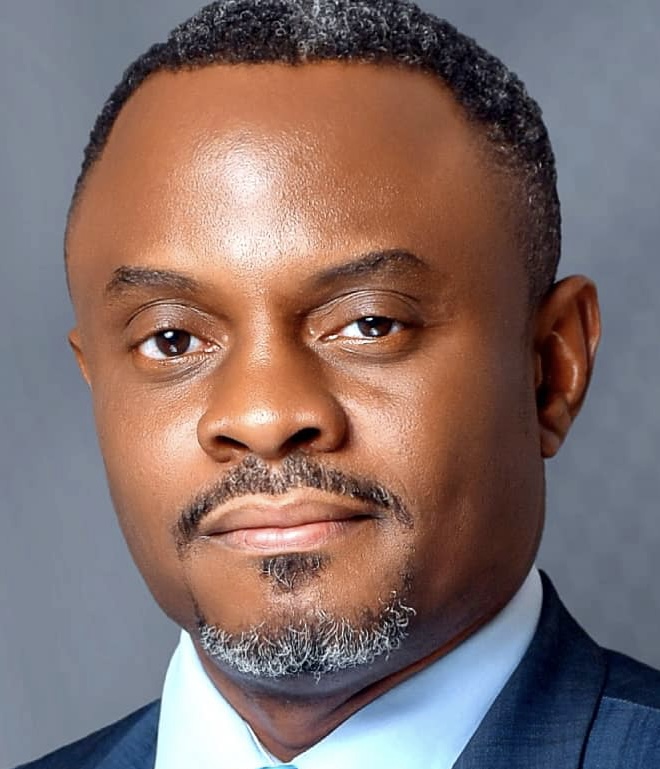Now that Muhammad Ali Pate is the minister, what next?

Finally, Professor Muhammad Ali Pate is “the minister”. Beyond initial expectations, he is not just Nigeria’s minister of health but the coordinating minister of health and social welfare. Just a few weeks ago, the global health community was astonished by a twist of fate. The incredibly adept specialist physician, with board certifications in internal medicine and infectious diseases, who is celebrated for his extensive leadership and management prowess in global health across governmental and non-governmental sectors, defied expectations. He boldly reversed his earlier decision to ascend as the CEO of GAVI – The Vaccine Alliance. Instead, he made a resolute choice to retrace his steps to his homeland, Nigeria, propelled by an unswerving dedication to serve his nation and its people.
Pate’s action remains a testament to his profound commitment to the survival and thriving of a nation. His actions demonstrate that the greatest reward can be using one’s skills and expertise to uplift a country and its people, even if it means foregoing personal advancement. At play is a complex twist of personal values, patriotism, and a sense of responsibility. It reflects a deep commitment to making a tangible impact on the country that has shaped his identity and experiences. Such a choice embodies a profound understanding of the power of collective progress over individual achievement.
True to type, the former CEO designate of Gavi gave a good account of himself during the comprehensive screening process as part of his nomination and confirmation at the Nigerian Senate. The screening focused on his vision for Nigeria’s healthcare sector and strategies for addressing critical challenges. His responses underscored the depth of his insights and expertise in shaping the nation’s health priorities and investments.
Pate highlighted the threats to Nigeria’s health system, stressed the urgent need for Nigeria to allocate more resources to the health sector, and emphasised that financing is a fundamental aspect of prioritising healthcare. He pointed out that the country’s current health expenditure per person is approximately $14, a figure that falls short of providing comprehensive health services. He lamented that families and individuals shoulder a substantial portion of healthcare spending through out-of-pocket payments. At the same time, the government allocates around $12 to $14 per person, amounting to a mere one percent of the GDP. This allocation pales in comparison to other nations, such as Niger Republic, which despite having fewer resources, spends double. Pate’s candid assessment underscored the imperative for Nigeria to enhance its financial commitment to health, to enable us to take control of the healthcare priorities rather than relying on external actors.
Furthermore, Pate emphasised the crucial significance of domestic production and self-reliance in healthcare. He underlined the need for Nigeria to capitalise on its potential for medical industrialisation, particularly in areas of pharmaceuticals and medical devices. The distinguished physician stated that a substantial portion of the medications consumed in Nigeria are imported, robbing the country of the opportunity for economic growth and job creation through domestic production. By prioritising investments in local production, Nigeria can reduce its dependence on foreign imports and create a more sustainable and self-sufficient healthcare system. Pate’s emphasis on medical industrialisation resonates with his track record of driving innovation and sustainability in healthcare systems.
In a compelling plea, Pate drew attention to the vital importance of immunisation and disease prevention. He expressed concern about the suboptimal state of immunisation in parts of the country and called for a renewed focus on safeguarding the health and well-being of Nigeria’s children. By investing in preventive measures, such as vaccines and health education, Pate emphasised that the country can effectively address health challenges and protect vulnerable populations.
Godswill Obot Akpabio, the senate president, could not help but express his satisfaction with Pate’s delivery at the screening. He stated: “Distinguished colleagues, I am sure you enjoyed the lecture. We actually invited him to answer questions, but he ended up lecturing”.
Indeed, it was a lecture, as Pate showcased his deep understanding of public health delivery, healthcare financing, the need for domestic production, and the imperative to prioritise investments in health. His responses underscored the significance of strategic financial planning, partnerships, fostering local industries, and prioritising preventive measures. His vision aligns with a dedication to improving healthcare access, affordability, and quality, positioning him as a dynamic force for positive change in Nigeria’s healthcare landscape.
His submission during the exercise that “Next to service to God, is service to country” gives a glimpse into the mind of this cerebral servant leader. This statement reflects a strong sense of duty and dedication to the nation and community. Pate, without a doubt, believes that serving his country and fellow citizens is a noble and essential endeavor, akin to a higher calling.
Now that Muhammed Ali Pate is Nigeria’s coordinating minister of health and social welfare, so what?
Much more than addressing the challenges in the country’s healthcare sector and setting an ambitious agenda for medical industrialisation, improved healthcare infrastructure, enhanced vaccination programs, and a more resilient and sustainable healthcare system, leveraging his expertise and experience, this signifies a broader and more comprehensive approach to addressing the well-being of Nigeria’s population. This expanded portfolio would encompass healthcare and social welfare initiatives, emphasising a holistic strategy to enhance citizens’ quality of life. His anticipated approach could include:
Comprehensive well-being
With a broader mandate that includes social welfare, Pate’s leadership would focus on medical care and addressing social determinants of health. This would involve initiatives to improve living conditions, education, housing, and access to clean water and sanitation.
The emphasis on social welfare aligns with his commitment to a whole-of-society approach, recognising that health outcomes are influenced by a wide range of factors beyond medical services.
Holistic approach
The inclusion of social welfare in Pate’s portfolio would allow for a more integrated and holistic approach to improving Nigerian lives. He would work to develop policies that bridge the gap between health and social services, creating synergies that amplify the impact of interventions.
For example, addressing issues such as poverty, malnutrition, and education could lead to improved health outcomes and better demographic dividends in the long term.
Coordination and collaboration
As coordinating minister, Pate would have a unique opportunity to foster collaboration across various government ministries and agencies. Health and social welfare are intricately connected, and Pate’s leadership could facilitate cross-sectoral coordination to achieve common goals. This could lead to more efficient resource utilisation, reduced duplication of efforts, and a more streamlined approach to tackling complex social and demographic challenges.
Preventive focus
Pate’s expertise in preventive healthcare and disease control aligns well with the broader social welfare context. By addressing issues such as nutrition, sanitation, and access to clean water, he could contribute to preventing a wide range of health issues before they escalate. This preventive focus could lead to healthier communities and reduced disease burden on the healthcare system.
Inclusive policies
His commitment to accountability and transparency could translate into policies that prioritise vulnerable populations. He could champion initiatives that ensure equitable access to healthcare services and social support for marginalized communities. This would align with his vision of a more inclusive and just society.
Data-driven decision making
The honourable coordinating minister’s emphasis on evidence-based approaches should extend to the social welfare sphere. By collecting and analysing data on social indicators, he could identify trends and gaps, enabling targeted interventions to address specific challenges in areas such as education, poverty reduction, and social services.
Away from the commendations, jubilation, and funfair, the task that lies ahead is undeniably monumental, transcending the capacities of Muhammad Ali Pate as an individual. What we face demands a unified, collective endeavour. Thus, it is imperative that we take inspiration from the visionary insights outlined in ‘The Lancet Nigeria Commission: Investing in Health and the Future of the Nation’ document, a remarkable publication that bears the authorship of Pate himself, among others.
Addressing Nigeria’s health challenges requires a whole-of-government and whole-of-society approach to prevent ill health. This means investing in highly cost-effective health-promoting policies and interventions which have extremely high cost–benefit ratios and offering clear political benefits for implementation. Interventions are needed to improve child nutrition, reduce indoor and outdoor air pollution, address unmet family planning needs, and improve access to safe drinking water and sanitation.
This whole-of-government and society approach which synchronises with Pate’s role as coordinating minister of health and social welfare will spur policy-driven initiatives and investments beyond curative measures, emphasising proactive and health-promoting schemes that boast remarkable cost–benefit ratios. These policies stand as compelling catalysts for change, potentially ushering in tangible improvements in health outcomes and the nation’s socio-economic fabric. Yet, the transformative potential of a whole-of-government and whole-of-society approach is more comprehensive than just public health improvements. This paradigm shift promises to foster a society where health is not just a privilege but an inherent right, empowering citizens to shape their health destinies actively.
In pursuing healthier communities, the whole-of-government and whole-of-society approach resonates as a unifying force that transcends divides and ignites collaboration. It leverages the collective strength of all stakeholders, propelling Nigeria toward a future where health is safeguarded and actively cultivated.
The whole-of-government approach emphasises that health is not the sole responsibility of the health sector but involves multiple sectors, including education, environment, transportation, and more. When sub-national political leaders are held accountable, they are more likely to collaborate across sectors, recognizing the interconnectedness of health with various aspects of society. This collaboration can lead to comprehensive policies that address the root causes of health challenges, such as poverty, education, and environmental factors.
An effective coordination of health and social welfare, however, requires a framework. Imagine for a moment a performance measurement system undergirding this whole-of-society approach. Imagine a robust mechanism meticulously designed to gauge, evaluate, and amplify the outcomes that emerge from the combined efforts of diverse sectors and stakeholders. Imagine a vigilant sentinel, ensuring that progress remains under constant watch, successes are celebrated with fervour and areas necessitating refinement are illuminated transparently and accountable.
At its core, this system will thrive on a comprehensive framework of metrics that seamlessly aligns with the overarching objectives of the whole-of-society approach. Far beyond the boundaries of traditional health indicators, these metrics will encompass the vast tapestry of social, economic, and environmental dimensions. They will contain health indicators, such as disease prevalence and immunization coverage, alongside social indicators, like education levels and poverty reduction. They will be entwined with economic indicators, forging a connection between well-being and economic growth, and they will intricately involve environmental indicators as they guide efforts towards sustainability and resilience.
At the heart of this system will be a collaborative ethos, where every stakeholder is an essential participant in the data collection process. Government entities, non-governmental organisations, community associations, and individual citizens alike, will all contribute to the mosaic of data that reflects societal progress. This inclusiveness, this collective participation, will ensure that an accurate, all-encompassing picture of our progress is painted, as an embodiment of our shared voyage.
Imagine transparency standing as an unwavering pillar of this performance measurement system. Data collected through the system’s extensive channels will be broadcast openly across sectors, with easily accessible dashboards, and available for public consumption. This open access to data is the key that unlocks a world where all stakeholders are informed, enlightened, and equipped to make decisions rooted in insights. It facilitates a climate of informed choices, where accountability reigns supreme and transparency is a guiding light.
This system will not just be a static repository of information—it will pulse with the vibrancy of real-time monitoring. Every stakeholder, from the highest echelons of government to the most remote communities, can track the ebb and flow of progress as it occurs. This real-time insight will become a compass that guides decision-makers, enabling them to respond swiftly to emerging challenges and seize fleeting opportunities for collaboration. When a community senses a drop in immunisation rates, they can leap into action, thwarting potential crises before they fully materialise.
Essentially, this performance measurement system will evolve — constantly learning, and perpetually adapting. By analysing data trends and patterns, stakeholders uncover the nuances that reveal areas of impactful interventions or necessitate course corrections. It will become a conduit for transformation, ensuring that resources flow towards strategies that wield substantial influence, nourishing the roots of our progress. It will incentivise collaboration and ignite a spark of spirited competition. Recognising and celebrating successful endeavours serve as a beacon that draws diverse sectors together, fostering an environment ripe for innovation and collective achievement.
This system will thrive on multi-level reporting, enabling cross-sectional comparisons and benchmarking across local, regional, and national arenas. Such comparisons invite stakeholders to see their contributions as threads woven into the intricate fabric of the whole-of-society landscape, nurturing the spirit of cross-regional learning. Central to its very essence are mechanisms that underpin accountability—clearly defining responsibilities and tracking outcomes. If a sector or stakeholder falls short of the prescribed targets, the system raises a flag, signalling a call to action, and inspiring endeavours to rectify the course.
Yet, this performance measurement system goes beyond numbers and data — it’s a forum for active stakeholder engagement and advocacy. It will facilitate regular reviews, foster dialogues, and nurture collaborative problem-solving sessions. It will elevate the significance of feedback loops and fortify a sense of ownership and commitment among all involved.
In summation, imagine a performance measurement system nestled within the framework of a whole-of-society approach. It emerges as a beacon of transparency, an instrument of accountability, and a catalyst for collaboration. It aligns the efforts of myriad stakeholders towards a common vision of societal well-being and progress, fortifying the foundation upon which positive change is built. This dynamic system is not just a bystander; it’s a partner on the journey towards a future defined by collective achievement and shared success.
That imagination is Pate at work.
Good enough, a robust, tested and reliable coordination framework — the Central Delivery Coordination Unit (CDCU) already exists within the Office of the Secretary to the Government of the Federation (OSGF). This platform, anchored by the authority of Executive Order 12 from the previous administration, has been rigorously tested and proven reliable. Its primary function is to streamline and enhance the coordination of service delivery across various sectors. One of the key strengths of the CDCU is its ability to foster a culture of accountability and transparency within the government’s service delivery mechanisms. The honourable coordinating minister has something worthwhile to build upon.
Now let the work begin in earnest.
Agbonika, a policy and governance reforms consultant, writes from Abuja, Nigeria. He can be reached via [email protected]
Views expressed by contributors are strictly personal and not of TheCable.












There are no comments at the moment, do you want to add one?
Write a comment